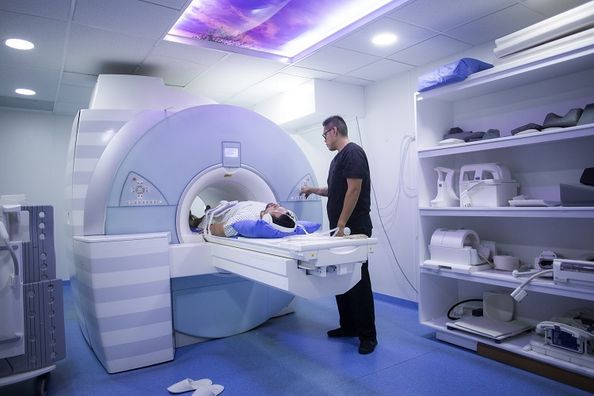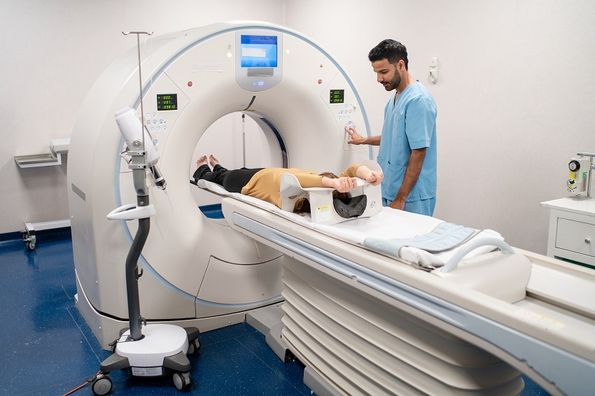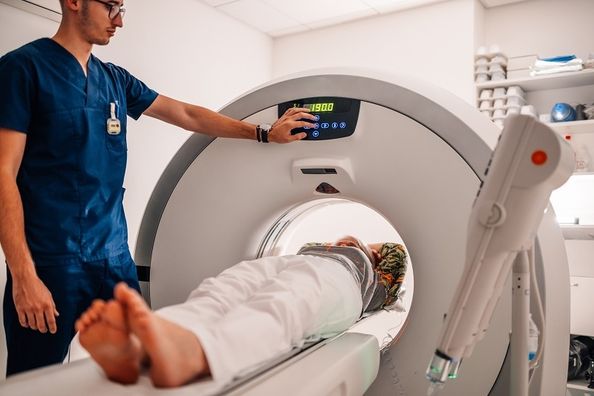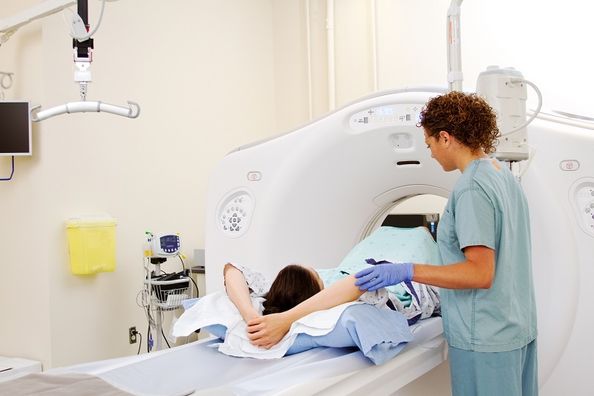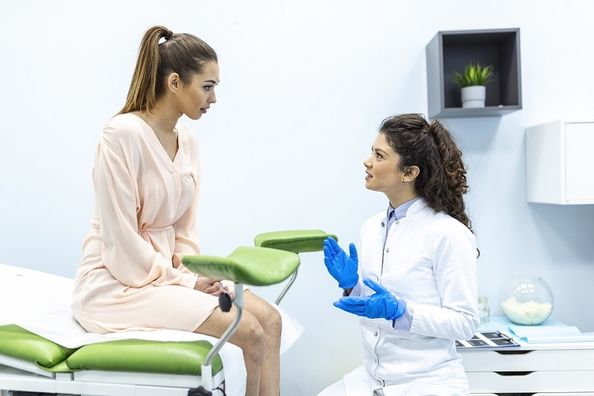Wisdom, deeper relationships with the people you love, a new perspective on life — there are many things to look forward to as you age. But one milestone you may not be looking forward to is your first colonoscopy.
Why Should I Get a Colonoscopy?
- In the US, when colorectal cancer is caught early, the 5‑year relative survival rate is around 90%.
- Unfortunately, only 40% of those cases are caught early — even though regular colonoscopies can help.
- 33% of American adults who should be tested for colorectal cancer have never undergone a screening.
A colonoscopy is a screening that allows your provider to view your large intestine — including your colon and rectum. During the procedure, they use a camera that lets them see things like polyps, ulcers, tumors, or inflammation.
It’s important to note that precancerous polyps are common. In fact, more than 40% of people coming in for a colonoscopy screening will have a precancerous polyp. When your doctor finds a colon polyp, they will remove it and send it for testing — eliminating its ability to turn into cancer. The colon does not have the ability to feel pain, so removal of the polyp is painless, and most polyps are found and removed during a colonoscopy.
So when should you get your first colonoscopy — and what is it actually like?
When It Comes to Colonoscopies — 45 Is the New 50
You may have grown up or gone through your adult life hearing that you should get your first colonoscopy when you turn 50 years old. But with cases of colon cancer on the rise, new guidelines recommend getting your first colonoscopy at an earlier age.
In May 2021, the US Preventive Services Task Force issued new recommendations for colorectal cancer, stating that people at average risk should start screening at age 45, which will allow health insurance companies to cover the cost of the test at a younger age.
If you are an adult with an average risk of colorectal cancer, the American Cancer Society now recommends that you should get your first colonoscopy at age 45.
You are at average risk for colon cancer if you don’t have:
- Colorectal cancer or serious polyps (large or numerous) in your family’s medical history
- Inflammatory bowel diseases — like ulcerative colitis or Crohn’s disease
- Previous cancer that required radiation to the belly, abdomen, or pelvic area
It’s important to get screened for colorectal cancer because it often develops without any symptoms. Many people may have colon cancer or early-stage polyps and not even realize it. By getting your first colonoscopy at 45 — and at regular intervals throughout your life — your provider can make a note of any changes over time.
If you are at average risk for colorectal cancer — and have colonoscopies that are normal with good visualization — you should get a colonoscopy every 10 years until you turn 75. If your provider finds non-cancerous polyps in your first colonoscopy, then they may recommend you get a colonoscopy more often — typically every 3 to 7 years.
When To Get Your First Colonoscopy Earlier Than 45
Typically, most adults should schedule their first colonoscopy when they turn 45. But if you have an increased risk for colorectal cancer, you should plan to have your first colonoscopy earlier than 45 years old. Symptoms such as changes in bowel habits, blood in stool, and weight loss may be indicative of more serious conditions, changing the colonoscopy from a screening to a diagnostic procedure.
If someone in your family has been diagnosed with colorectal cancer, your provider might recommend that you get your first colorectal screening at 40 years old, or 10 years earlier than your family member’s initial diagnosis.
So for example, if your mother was diagnosed with colorectal cancer at age 45, you should plan to get your first colonoscopy at age 35 — 10 years before the age when your mother was diagnosed.
If you are at an above-average risk for colorectal cancer, talk to your doctor about how often you should get a colonoscopy — the regularity of colorectal cancer screening will depend on your personal and family medical history.
Having an increased risk for colorectal cancer can be overwhelming — but just because your risk is higher, it doesn’t mean that a diagnosis is a guarantee. Your Duly provider can give you the resources, screenings, and knowledge you need to understand your risk.
Getting Your First Colonoscopy at Duly
Colonoscopies might seem like just another item on your “getting older checklist,” but they are actually so much more. This simple screening can be lifesaving — but only when you make and keep your appointment.
You may have some nerves about getting your first colonoscopy — and these are totally normal. In the same way that you might be worried about giving a big speech or moving to a different state, it’s normal to feel nervous when you have to do something new for the first time.
Duly is here to help you feel confident in the necessary preparations before your colonoscopy — and to help you feel comfortable during it.
Schedule your first colonoscopy today by calling 630−717−2600.
Health Topics:




